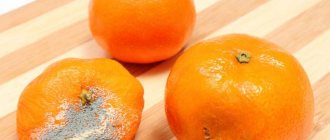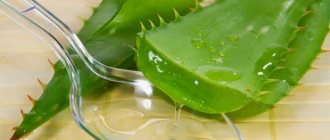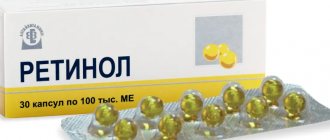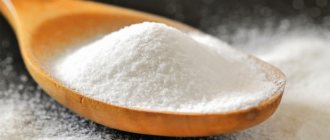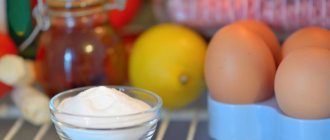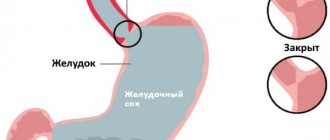Are you suffering from heartburn? Well, we hasten to reassure you - you are not alone and this problem haunts many people. True, this, of course, will not make it any easier for you. Therefore, it is necessary to take measures to help get rid of heartburn. Moreover, the sooner you do this, the easier it will be to overcome heartburn.
How much time and effort it will take you to fight heartburn depends on a variety of factors - how long heartburn bothers you, how intense it is, how often it occurs and, most importantly, what are the reasons for its development. It is these issues that we will look into in this article. But be sure to remember that all this information can in no way replace a visit to a gastroenterologist.
Causes of heartburn
In order to successfully get rid of heartburn, it is very important to understand the cause of its occurrence. In some cases, this is just an individual characteristic of the body, and in others, heartburn indicates the presence of a particular disease. The most common reasons are:
Stomach diseases
Gastritis, gastric ulcer, especially with increased stomach acidity, in most cases lead to the development of heartburn. The most important treatment for heartburn in this case is to reduce the level of acidity of gastric juice.
Weak valve
Some people have such a physiological feature as a too weak valve separating the stomach and esophagus. If the valve is weak, gastric juice almost freely penetrates the esophagus, causing irritation and, accordingly, heartburn.
Pregnancy
Many women experience heartburn for the first time during pregnancy. This is explained very simply - hormones relax all the smooth muscles of the body, including weakening the valve. And over long periods of time, the uterus supports the stomach, which is an additional factor for the development of heartburn.
Classification of drugs
All medications that eliminate heartburn caused by high acidity in the stomach are divided into groups according to the principle of their action.
- Antacids : absorbable;
- non-absorbable.
- proton pump inhibitors;
Since the medications presented have a number of side effects and contraindications, and are sometimes incompatible with each other, before taking them you should study the principle of action and carefully read the instructions.
First aid for heartburn
When heartburn starts, you want to get rid of it at any cost. That's why we offer you several recipes that can be used as first aid. They are quite effective, but do not forget - this is not a treatment, but a temporary measure.
Raw peas. Pour two tablespoons of peas into a cup, pour boiling water over it and leave to steam for about three hours. Do you feel heartburn starting? Start chewing peas - two or three peas every five minutes. After about half an hour, the heartburn will subside. The remaining steamed peas can be stored for about a week, but only in the refrigerator.
Vegetable juices. Raw potatoes, cabbage, cucumber - squeeze 100 grams of juice from any vegetable you like and drink in one gulp, be sure to wash it down with a glass of cool water. After about 15 minutes, the heartburn will subside. True, it may be replaced by another misfortune - increased gas formation. But there’s nothing you can do about it - as they say, you have to choose the lesser of two evils.
Eggshell. If you often suffer from heartburn, always keep eggshell powder at the ready. It's easy to prepare - heat two tablespoons of eggshells in a frying pan, and then grind in a coffee grinder to a powder. Heartburn begins - just eat half a teaspoon of powder and drink water. By the way, crushed chalk powder helps some people - take note.
Salt. In some cases, you can get rid of heartburn with the help of ordinary salt. As soon as you feel heartburn approaching, immediately suck on a few grains of salt and swallow the salty saliva. After about two to three minutes, you will feel the heartburn subsiding. However, this only works in half the cases - sometimes the completely opposite effect can be observed. So watch your reaction to see if this method is right for you.
Cool water. Very often you can get rid of heartburn with... cool, clean water. Drink a few sips and there is a high chance that heartburn will disappear without a trace. If it doesn’t help the first time, try experimenting with the water temperature. For some, colder water helps, while for others, warm water helps. True, the effect of this remedy is short-lived - after about two to three hours, heartburn will return again.
St. John's wort herb for gastritis
St. John's wort helps with gastritis, as this plant has many indications for the treatment of cardiovascular diseases, gastrointestinal pathologies, inflammatory processes in the oral cavity, etc. Due to its excellent ability to regenerate the skin after scarring, St. John's wort is used to eliminate inflammatory processes in the gastric mucosa, ulcers and erosions .
Before choosing a useful form of a medicinal product, the patient must undergo a comprehensive examination and determine the level of acidity. Not only the treatment, but also the list of medications and natural ingredients depends on this parameter. It is allowed to use St. John's wort for chronic gastritis, which allows you to extend the time of remission.
To reduce the increased level of acidity, the patient can combine the herb with others. So, to maintain protective forces, St. John's wort is brewed with rose hips. The liquid restores the mucous surface and nourishes the body with beneficial vitamins. Tincture of St. John's wort, aloe and potato has astringent antiseptic properties. For these purposes, take a drink prepared from fresh juice of these ingredients.
Atrophic gastritis is treated with angelica fennel St. John's wort and blackberry
Atrophic gastritis is treated with angelica, fennel, St. John's wort and blackberry. This remedy normalizes the functioning of the pancreas. The same effect, in combination with antiseptic and anti-inflammatory properties, has a collection of medicinal herbs with chamomile. The latter option calms the nervous system, removing the psychosomatic causes of the disease.
It is useful to make teas or decoctions from the natural components of St. John's wort for gastritis. But in this case, you should strictly follow the recipe, because an overdose is fraught with the opposite effect, which will further intensify the symptoms. The tincture in combination with St. John's wort is used by doctors in the treatment of increased gastric juice. This component has astringent and antiseptic functions. After completing a course of such therapy, the patient will improve his health due to the comprehensive protection of the inflamed mucosal surface.
St. John's wort recipes for gastritis:
- 10 grams of crushed herb is poured into a glass of water and an infusion is prepared, heating it for 15 minutes and cooling for 45 minutes. Take a third of a glass half an hour before meals three times a day for 2-3 days;
- take 30 drops of St. John's wort tincture (can be purchased ready-made at the pharmacy) 20-30 minutes before each meal;
- 4 tablespoons of the mixture (St. John's wort, juniper, centaury, mint, chamomile in equal parts) are taken per liter of boiling water, left for 10 minutes, and cooled. Take a glass three times a day before meals.
Treatment of heartburn
If you do not want to constantly deal with heartburn, you should seek help from a gastroenterologist. Firstly, only he can reliably establish the cause that led to the development of heartburn. And secondly, he will select the optimal course of treatment. In addition, you can resort to folk recipes that will greatly facilitate your fight against heartburn. But be sure to talk to your doctor first.
Oat grains. Oats are a true ally in the fight against heartburn. And preparing a life-saving remedy is very simple - pour a tablespoon of oats with half a glass of cool boiled water and leave overnight. In the morning, carefully and slowly chew the soaked oat grains. Treatment should last at least three months - and for about a year you will not remember heartburn.
Buckwheat grain. Heat a frying pan and fry five tablespoons of buckwheat until it turns brown. Then pass the cereal through a meat grinder and place the resulting powder in a hermetically sealed container. Every morning on an empty stomach, 15 minutes before breakfast, eat half a teaspoon. Relief will come within two days, but do not stop treatment - it should continue for at least one month.
Potato juice. If you have some free time, you can try to get rid of heartburn with potato juice. Every morning, squeeze three tablespoons of juice and drink it with a glass of cool, clean water. After a week, double the amount of juice and continue drinking it for another three weeks. In a month, heartburn will disappear.
St. John's wort for gastritis contraindications reviews
St. John's wort is often used for gastritis of the stomach. The plant helps well with both low and high acidity, but the recipes for its preparation in these cases will differ. For atrophic gastritis, St. John's wort is used at an early stage of the disease as part of herbal preparations.
Treatment of gastritis with St. John's wort consists of taking infusions based on flowers. The herb goes well with other medicinal plants, for example, chamomile, yarrow, which are also used to treat gastritis. Before taking St. John's wort for gastritis, make sure that you have no contraindications.
St. John's wort is often used by cardiologists as a pacemaker, so if used frequently or in excess of the dosage, it can cause an increase in blood pressure and change blood clotting parameters. Before use, consult your doctor to see if you can drink St. John's wort if you have gastritis.

St. John's wort received positive reviews from users who treated gastritis
While consuming St. John's wort, it is not advisable to visit the beach, since at this time you can get a sunburn due to increased skin sensitivity. St. John's wort is a slightly toxic plant. With prolonged use, a bitter taste may appear in the mouth, signaling poor liver function.
An absolute contraindication to the use of St. John's wort during gastritis is the presence of an allergic reaction to the plant. During the acute form of the disease, you should not prepare tinctures, as they contain alcohol, which irritates the inflamed surface of the gastric mucosa.
It is not recommended to drink infusions and decoctions with the plant for the following conditions and diseases:
- pregnancy and breastfeeding;
- children under 12 years of age;
- heat;
- taking painkillers and antidepressants;
- diseases of the heart and blood vessels;
- hypertension.
St. John's wort has received positive reviews from users who have treated gastritis. They note improved digestion and decreased pain. However, some experienced side effects such as tachycardia, hypertension.
Reviews on the use of St. John's wort for gastritis
Anna, 45 years old: I was diagnosed with gastritis with high acidity and prescribed medications. But when I saw their cost, I decided to be treated with herbs. I drank a mixture with St. John's wort. True, I used them constantly, but I should have taken them in courses. As a result, my heart began to ache and I had to stop treatment.
Anton, 28: got gastritis at work because he was constantly snacking on the go. When the pain became unbearable, my wife began to prepare a decoction of St. John's wort for me in a thermos. Drank at work between meals. Gradually the unpleasant sensations passed, digestion returned to normal.
Sources:
- https://agrostory.com/info-centre/fans/lekar-na-gryadke-vyrashchivaem-zveroboy/
- https://sobesednik.ru/post/zveroboy-22-zvd-09
- https://woman.rambler.ru/health/40060883-zveroboy-pri-gastrite-polza-i-vozmozhnyy-vred/
- https://gastritinform.ru/www.rusmedserver.ru/narodnaya_medicina/Polza-zveroboya-pri-gastrite.html
- https://zdoroviebl.ru/rasteniya/zveroboj/pri-gastrite/
- https://gastritinform.ru/peptic.ru/gastrit/lekarstva-i-narodnye-sredstva/zveroboj-pri-gastrite.html
Post Views: 1,777
Simple rules for heartburn
In order to get rid of heartburn as quickly as possible, remember to follow a few simple but very important rules. Otherwise, there is a high risk that all your efforts will go down the drain. So:
- Eating. You are strictly forbidden to overeat! Meals should be fractional - the portions are small, as well as the break between meals. Overeating significantly provokes the development of heartburn, and it does not have the most favorable effect on your figure.
- Lying position. Pay attention to how you sleep - the head of the bed should be slightly elevated. This is not so difficult to do - place a cushion from a blanket or a book under the legs of the bed under the mattress. By the way, it is highly not recommended to lie down in the first 30 minutes after eating - this will reduce the likelihood of developing heartburn significantly.
- Cloth. You may be surprised, but very severe attacks of heartburn can occur due to clothing that is too tight or puts pressure on the stomach. Therefore, try to avoid such patterns, especially after meals.
If you follow your doctor's recommendations, treat the treatment process responsibly and follow all the rules, very soon you will have no reason left to complain that heartburn is tormenting you again.
Antacids
These remedies are the most popular because they quickly eliminate heartburn by neutralizing hydrochloric acid in the stomach. They are prescribed during the initial phase of development of acid-related gastrointestinal diseases, as well as as symptomatic therapy in isolated cases of reflux of stomach contents into the lumen of the esophagus.
The first substance used to reduce acidity is sodium bicarbonate (baking soda), which is an absorbable antacid. But the negative side effects accompanying the action of this group of drugs forced scientists to look for other ways to solve the problem.
As a result, non-absorbable antacids appeared, which are salts, oxides and hydroxides of calcium, magnesium and aluminum. More in demand now are combination products containing magnesium and aluminum compounds in various percentages.
They are insoluble compounds that are practically not absorbed into the blood, due to which the effect of their use occurs later, but lasts longer.
Magnesium supplements promote the production of large amounts of mucus, which protects the inner wall of the stomach. Once in the intestines, they enhance peristalsis and have a mild laxative effect.
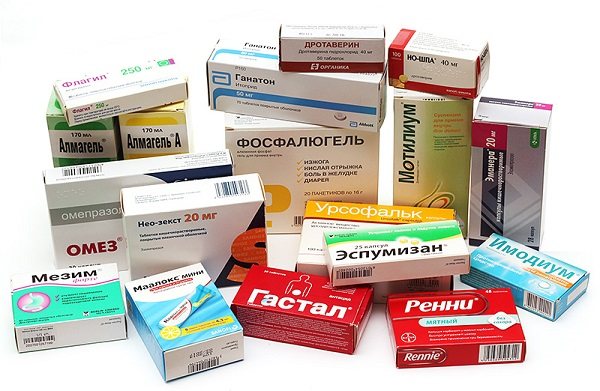
The abundance of pharmacological drugs for heartburn requires a competent approach to their selection.
Aluminum compounds stimulate the production of prostaglandins, which suppress the secretion of perchloric acid in the stomach while simultaneously increasing the secretion of mucus in it. Also, under their influence, the tone of the esophageal sphincter increases, preventing the reflux of gastric juice into it. Aluminum preparations slow down the movement of contents through the intestines, causing constipation. Therefore, the ratio of these metals in modern antacids is a precisely balanced combination.
Absorbable antacids
Compounds of alkali metals such as sodium, calcium and magnesium, after entering the stomach, disintegrate and are absorbed into the blood. During the reaction, the acid is quickly neutralized, releasing large amounts of carbon dioxide, which distends the stomach.
In an effort to reduce it to its previous volume, the body begins to synthesize substances that cause contractions of the smooth muscles of the organ. This leads to spasms, which result in a new reflux of contents back into the esophagus.
In parallel with this, as a compensatory mechanism to reduce the acid concentration, its production is activated, and in a short period of time the acidity indicator increases again. This phenomenon is called acid rebound and is a negative effect of taking absorbable antacids. It also often occurs in response to abrupt discontinuation of acid-lowering drugs after long-term use.
Note! Absorbed antacids can provoke the development of an ulcerative process when consumed at night, when there is no food intake and the acid directly affects the walls of the stomach.
Common drugs in this group are:
- Rennie chewable tablets are recommended for the occasional treatment of heartburn caused by eating a certain type of food or exercising after a meal.
- Vikalin tablets , which, in addition to reducing acidity, have an enveloping property due to the presence of bismuth subnitrate in them.
- Baking soda , which gastroenterologists recommend using only in extreme cases when there are no other drugs.
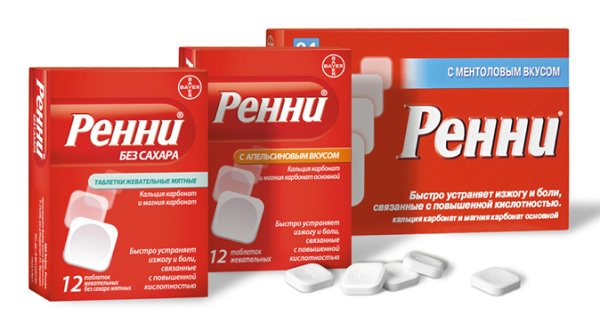
Absorbable antacids can only be used occasionally
Non-absorbable antacids
This group of antacids is represented by oxides and salts of aluminum and magnesium, which do not come into contact with hydrochloric acid, but adsorb it. Due to this, the process of relieving heartburn symptoms takes longer, but it is extended over time and does not cause acid rebound. Such drugs are indicated for heartburn caused by gastritis.
Other positive properties:
- binding and excretion of bile acids;
- stimulation of mucus production, which impedes the effect of acid on the glandular epithelium;
- increased tone of the esophageal sphincter.
With prolonged use of drugs, aluminum chemical compounds can accumulate in the body, manifesting themselves as intoxication, severe functional disorders of the excretory system, and thinning of bone tissue.
Important! The use of aluminum preparations by pregnant or lactating women leads to the development of skeletal and nervous system development disorders in children.
Popular drugs:
- Phosphalugel gel, which gradually reduces acidity levels and adsorbs toxins.
- Gel "Almagel", in addition to being an antacid, has an anesthetic effect.
- Tablets "Maalox", relieving symptoms of heartburn.
- Gaviscon suspension, suitable for use by children and pregnant women.
- Iberogast drops, which are a herbal medicine made from extracts of medicinal herbs (mint, celandine, chamomile, angelica root and others), reduce acidity, exhibit antispasmodic, anti-inflammatory, healing and mucolytic effects.
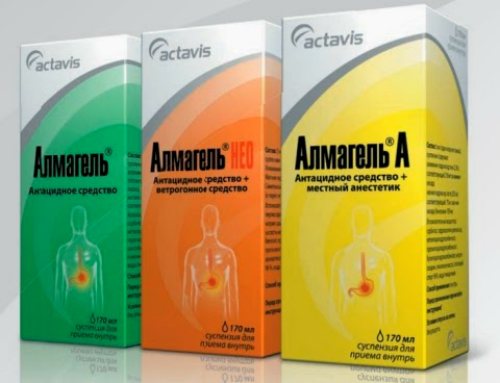
Non-absorbable antacids often have additional properties
Important! If an antacid does not relieve an attack of heartburn, then it is necessary to urgently consult a physician or gastroenterologist to determine the cause of its occurrence.
If for 3-5 days the burning sensation in the sternum area returns immediately after the medication has stopped working, this may signal the development of a serious pathology of the digestive organs, liver or pancreas.
Diet therapy
When treating heartburn, which is caused by increased acidity, diet plays an important role. The patient should first of all give up alcohol and smoking, eat food 7-9 times a day in small portions, which will avoid overloading the stomach. It is important that the dishes are at the optimal temperature; cold or too hot stimulate the nervous system and cells that secrete hydrochloric acid, as a result of which the acidity increases and is reflected by a burning sensation in the esophagus. For the same reason, it is not recommended to eat dishes with a coarse consistency; nutritionists insist on pureed soups and cereals.
Another reason for the increase in the level of hydrochloric acid in the digestive juice is excessive consumption of fatty meat, fish, spicy and fried foods. The patient’s menu should be dominated by recipes from dairy products, cereal porridges and lean meats and fish. The diet should include honey, nuts, fruit jelly, jelly and cottage cheese.
